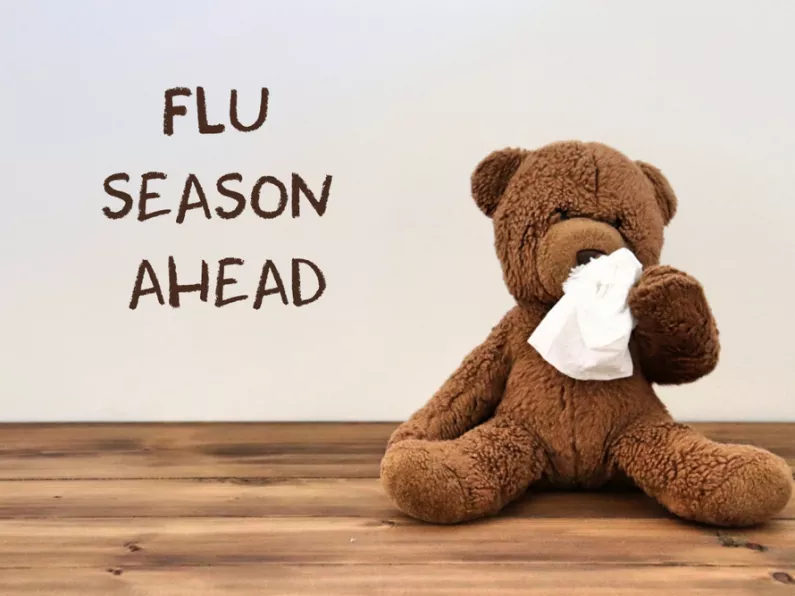Well mummies and daddies, we’re more than halfway through a new term back to school.
Our babies were incubated in protected, sanitized bubbles for two plus years.
Now, with bated breath and anticipation, those bubbles have finally popped.
And pop they most certainly did, in the most dramatic way possible.
Viral downpour
I don’t think any of us could have been prepared for the viral downpour that has ensued since the physical re-opening of schools.
We became so enthralled by the terror of the COVID -19 virus and the threat of monkeypox, that we may have forgotten that this time of year is plagued by several other illnesses.
Stubborn, vague, high fevers and rashes, vomiting and diarrhea, and cough and cold with wheezing have become daily complaints for our children.
Though these illnesses typically remit within one to two weeks, without the need for hospitalization, the distress that they cause to the entire family is dire.
Panic
We pediatricians are certainly seeing a marked rise in doctor’s office and emergency room visits as well as hospital admissions.
We deal with parents who are panicked and worried.
This is the most unwell you have ever seen your precious angels.
Conversely, children seem to be unceremoniously knocked down by these illnesses as their little bodies and immune systems were never exposed to this type of assault.
Empowering parents
We often prescribe and recommend medications to address your child’s issues.
During this acute period of anxiety, we may become neglectful of explanations regarding the mechanisms of action.
I strongly believe that all parents must be educated and empowered to be active participants in the management of their sick child alongside health care professionals.
Common drugs
In that vein, let’s peruse some common drugs that are offered and the way they work.
- PANADOL: The name “Panadol” is a brand. The active drug is paracetamol/acetaminophen. It belongs to a class of drugs called COX-2 blocking agents. It works by blocking the pain receptors in our brain and body. It also helps to regulate body temperatures, thereby controlling fevers.
- IBUPROFEN: This belongs to the class of drugs called Non-Steroidal Anti-inflammatory Drugs (NSAIDS). They can relieve pain and fever while also reducing inflammation. Caution: Ibuprofen should be taken with meals due to its propensity to cause stomach irritation. Seldomly, some viruses such as dengue can cause low platelets (the cells in your blood that cause you to form clots after injury). Ibuprofen will be withheld in these specific cases because they can prevent the platelets from working well and increase the risk of bleeding.
- VENTOLIN: This is a brand name. The active drug is Salbutamol. This belongs to the class of drugs known as Beta-2 Agonists. It works by relaxing the muscles around the small airways (bronchioles) in our lungs. You hear a high-pitched whistling sound called “wheezing” when our bronchioles get constricted and narrow. This happens during asthma attacks or bad chest viruses. Salbutamol relieves the bronchial contractions and allows more air to flow into our lungs and supply oxygen to our blood and tissues during wheezing.
- ATROVENT: This drug may be used as an adjunct to Ventolin to relieve wheezing and relax the smooth muscles of the small airways of the lung. Its chemical name is Ipratropium Bromide.
- PREDNISOLONE: This is a steroid-based drug that may be administered via mouth for a few days if your child is wheezing. Prednisolone “quiets” the overzealous immune response that occurs in the bronchioles that indirectly worsens wheeze.
- ANTIHISATMINES: These drugs work by blocking histamine and its inflammatory and immune effects in the lungs during viral illnesses.
- MUCOLYTICS: These drugs help to break up mucus build-up along the infected respiratory tract and aid it in being cleared from the system.
- ORAL REHDRATION FLUIDS: If your child has the stomach flu, oral rehydration is encouraged. We generally recommend small amounts of liquid drinks frequently. In cases of persistent diarrhea, unsweetened beverages are preferred. Your pediatrician may also recommend fluids with added electrolytes to replace that lost from the gastrointestinal system. This can be given by mouth, but if your little one is vomiting, fluids can be administered in drips.
Treatment plans
I hope that this was clear, simple enough to digest and it increases your appetite for knowledge.
Get in the habit of discussing treatment plans with your child’s pediatrician and asking for explanations.
We should all be on the same page as we do everything we can ‘cause we can’t help but love them.’







